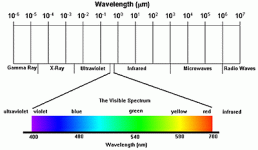James Brown
Suspended by Member Request
Irreducible Complexity and Michael Behe
Irreducible Complexity Demystified
Irreducible Complexity Demystified
There was supposed to be a special reason why it was impossible or at least very difficult for evolution to arrive at an 'all parts required' situation, but there is no such reason. The proposed reason was based on overlooking standard evolutionary processes and making analogies to manufactured items. Comparing Behe's mousetrap to Venus' flytrap confirms the reasonable suspicion that analogies and arguments based on manufactured items lead to underestimating nature. Since IC can occur in the ordinary course of events we have a known process, evolution, which is acting in the present and which given time is sufficient to produce the adaptations that Behe finds perplexing. This is like the raising of the Rocky Mountains; a known process acting in the present is sufficient, given time, to produce the result. Of course there is no way to predict all the details in either case, nor is it necessary.


